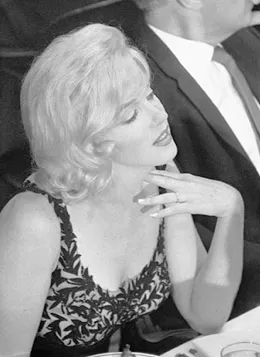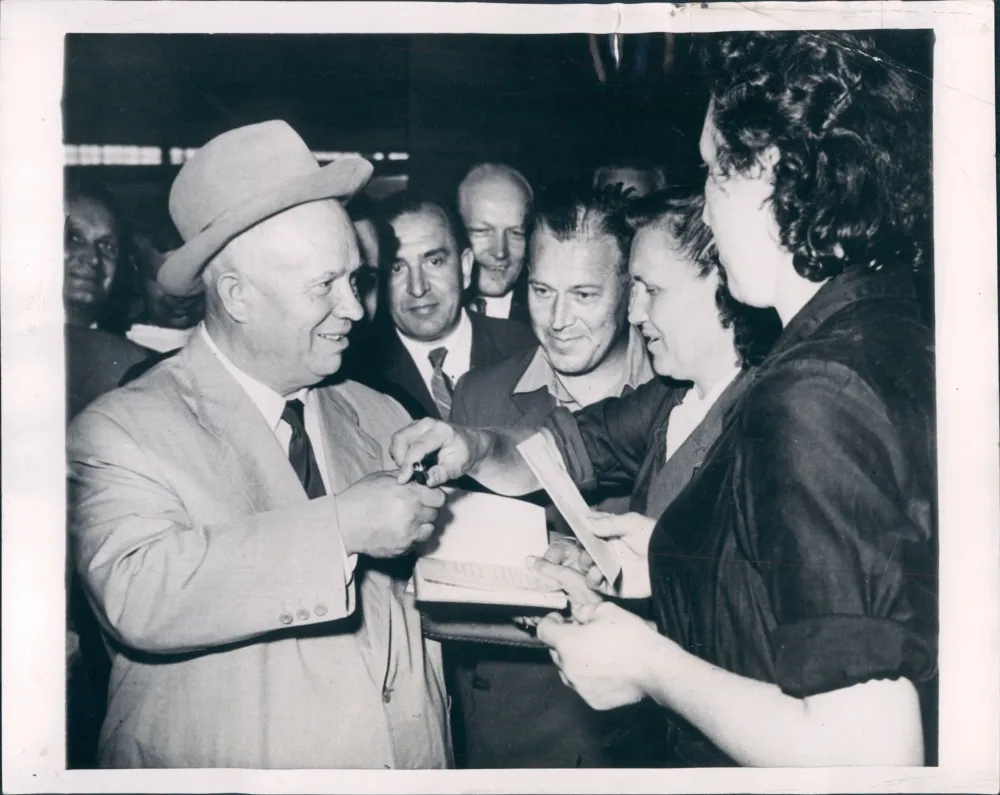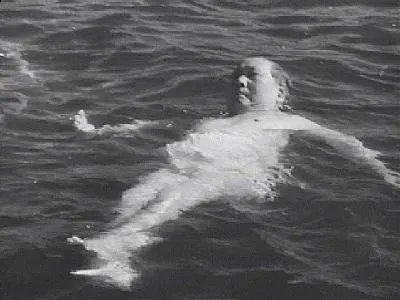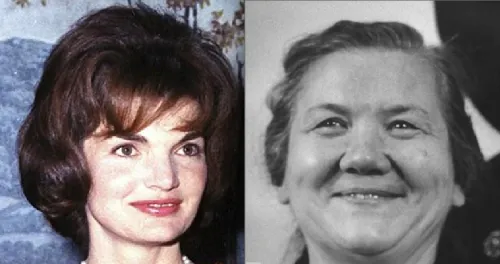Khrushchev in Water Wings: On Mao, Humiliation and the Sino-Soviet Split
/https://tf-cmsv2-smithsonianmag-media.s3.amazonaws.com/filer/Mao_header.jpg)
The list of things that Nikita Khrushchev would never be and could not do was long; some of them would change history. It has been seriously suggested, for example, that the reason Khrushchev survived the murderous Soviet-era purges of the paranoid 1930s and early 1950s—when tens of thousands of other apparatchiks were rewarded for their loyalty with a bullet in the back of the neck—is that, standing just 5 feet 3 inches tall, he was the one member of the politburo who did not tower over the man he would replace, the 5-foot-6 Stalin. It is also possible that, had he been a better swimmer, the disastrous break between the Communist parties of Russia and China—the Sino-Soviet Split, which would help guarantee the west victory in the Cold War—might have been averted.
Explaining why Khrushchev’s prowess in the pool mattered means explaining Khrushchev. The Soviet premier came from peasant stock and was working in a mine when revolution came to Russia in 1917. For years afterward he was a minor player on the Soviet stage and a figure of fun to many senior Communists; the perception that he posed no threat, indeed, became a major asset. Barely educated—he had only four years of formal schooling—and hailing from a rural backwater in the Ukraine, Khrushchev was sometimes coarse, often foul-mouthed and all too easily intimidated by an effortless patrician such as the British Prime Minister Harold Macmillan (who stood 6 feet tall and was a former Oxford classics scholar, Guards officer and war hero). An enthusiast for hopeless scientific “breakthroughs,” such as a death ray for rats, Khrushchev had a variable attention span and a sketchy grasp of technical detail. He was also so ungainly that Stalin once amused himself by forcing his protégé to dance a gopak—the famous squatting, spinning, kicking Cossack dance that demands precisely the sort of athleticism and agility that Khrushchev conspicuously lacked.
All this had its inevitable impact on the new leader’s performance when Khrushchev unexpectedly outmaneuvered his rivals to become Stalin’s successor after 1953. On one hand it made the new leader resilient; in power, Khrushchev was intelligent and ebullient, highly ambitious, possessed of a sense of humor and endlessly quotable . But he was also blessed, or cursed, with an acute awareness of his own failings. Only Khrushchev, among a uniformly complicit Soviet leadership, experienced such regret over the hundreds of thousands of innocents that he had condemned to death on Stalin’s orders that he felt compelled to give his famous “Secret Speech” to the 20th Party Congress in 1956, denouncing his predecessor and setting the process of destalinization firmly on course. Yet Khrushchev, far more than the cautious Stalin, was also determined to prove himself by making a splashy mark on foreign policy—a trait that very nearly proved disastrous during the Cuban Missile Crisis of 1962. “The chip on his shoulder,” the essayist Neal Ascherson observes, “was the biggest carried by any leader in history, Napoleon and Hitler not excepted. It was heavy enough to crush the world.”
Khrushchev’s other foreign adventures form a revealing chapter in his history. He more or less bullied his American counterpart, Dwight Eisenhower, into issuing him an invitation to tour the U.S. in 1959, hitting the headlines with his professed desire to visit Disneyland and making sure that he was introduced to Marilyn Monroe. During the Soviet premier’s visit to Hollywood, the screen goddess implausibly made a short speech in Russian welcoming him to her studio on behalf of “the workers of Twentieth Century Fox.” (Monroe was coached by Natalie Wood, a fluent Russian speaker.) He also made several trips to China. In the course of these visits, Khrushchev found himself playing cat-and-mouse with the chairman of the Chinese Communist Party, Mao Zedong–. It was a game, the Soviet leader was discomfited to find, in which Mao was the cat and he the mouse.

Russian relations with China had long been fractious. The two countries, sharing a border stretching more than 2,000 miles, regularly squabbled over control of Mongolia and Manchuria. In the 1930s, when China was invaded by Japan and simultaneously consumed by civil war between Mao’s communists and the Nationalists led by Chiang Kai-shek, Stalin had forcibly occupied some of the rich Manchurian coal fields. But after Mao’s final victory in 1949, the emergence of a Communist China threatened to upset the balance of power in Asia. United by ideology, it was generally assumed, China and the USSR would dominate, threatening Japan and even India and Iran. The two powers did indeed work together—if not always well—during the Korean War, and by the time Khrushchev came to power there were thousands of Soviet scientists and advisers in China helping Mao. The USSR even promised to share its nuclear secrets.
Behind the scenes, however, relations between the powers were far worse than was generally appreciated. From the Soviet perspective, there was every reason to be suspicious of Mao—who, as the Communist leader of a successful peasant revolution, had achieved something that the Marxist dialectic insisted was not possible. For Mao, the issue was more personal. Invincibly self-confident and acutely aware of his country’s proud history, he “naturally assumed that he was the leading light of communism,” Frank Dittöker writes, “making him the historical pivot around which the universe revolved”–and he bitterly resented the way Stalin treated him as a “caveman Marxist” and dismissed his writings as “feudal.”
When Mao made his first visit to Moscow after winning control of China, in 1949, he expected to be treated with special favor but was shocked and humiliated to be greeted as just one guest among many who had come to celebrate Stalin’s 70th birthday. Denied more than a brief meeting with the Soviet leader, Mao spent several weeks cooling his heels in a remote dacha outside Moscow where the sole recreational facility was a broken table tennis table. After they did meet, Stalin extorted substantial concessions in return for paltry military aid, and when war broke out in Korea, the USSR insisted that China pay “to the last ruble” for the weapons it required to aid the North Koreans. Mao was left boiling with anger. He wanted revenge.

His opportunity arrived eight years later, when Khrushchev made a second state visit to China. His first, in 1954, had proved difficult; Khrushchev’s memoirs disparagingly describe the atmosphere as “typically oriental. Everybody was unbelievably courteous and ingratiating, but I saw through their hypocrisy…. I remember that when I came back I told my comrades, ‘Conflict with China is inevitable.’ ” Returning in the summer of 1958 after several stunning Soviet successes in the space race, including Sputnik and an orbit of the earth made by a capsule carrying a dog named Laika, the Soviet leader was amazed at the coolness of the senior Chinese officials who gathered to meet him at the airport. “No red carpet, no guards of honor, and no hugs,” interpreter Li Yueren recalled—and worse followed when the Soviets unpacked in their hotel. Remembering Stalin’s treatment of him all too clearly, Mao had given orders that Khrushchev be put up in an old establishment with no air conditioning, leaving the Russians gasping in the sweltering humidity of high summer in Beijing.
When talks began the next morning, Mao flatly refused a Soviet proposal for joint defense initiatives, at one point leaping up to wave his finger in Khrushchev’s face. He chain-smoked, although Khrushchev hated smoking, and treated his Soviet counterpart (says Khrushchev biographer William Taubman) like “a particularly dense student.” Mao then proposed that the discussions continue the next day at his private residence inside the Communist Party’s inner sanctum, a luxury compound known as Zonghanhai.
Mao had plainly done his homework. He knew how poorly educated Khrushchev was, and he also knew a good deal about his habits and his weaknesses. Above all, he had discovered that the portly Russian—who weighed over 200 pounds and when disrobed displayed a stomach resembling a beach ball—had never learned to swim.

Mao, in contrast, loved swimming, something that his party made repeated use of in its propaganda. He wasn’t stylish (he mostly used a choppy sidestroke), but he completed several long-distance swims in the heavily polluted Yangtze River during which it was claimed that (with the aid of a swift current) he had covered distances of more than of 10 miles at record speed. So when Mao turned up at the talks of August 3 dressed in a bathrobe and slippers, Khrushchev immediately suspected trouble, and his fears were realized when an aide produced an outsize pair of green bathing trunks and Mao insisted that his guest join him in his outdoor pool.
A private swimming pool was an unimaginable luxury in the China of the 1950s, but Mao made good use of his on this occasion, swimming up and down while continuing the conversation in rapid Chinese. Soviet and Chinese interpreters jogged along at poolside, struggling to make out what the chairman was saying in between splashes and gasps for air. Khrushchev, meanwhile, stood uncomfortably in the children’s end of the pool until Mao, with more than a touch of malice, suggested that he join him in the deeper water.
A flotation device was suddenly produced—Lorenz Lüthi describes it as a “life belt,” while Henry Kissinger prefers “water wings.” Either way, the result was scarcely dignified. Mao, says Lüthi, covered his head with “a handkerchief with knots at all the corners” and swept up and down the pool while Khrushchev struggled to stay afloat. After considerable exertion, the Soviet leader was able to get moving, “paddling like a dog” in a desperate attempt to keep up. “It was an unforgettable picture,” said his aide Oleg Troyanovskii, “the appearance of two well-fed leaders in swimming trunks, discussing questions of great policy under splashes of water.”
Mao, Taubman relates, “watched Khrushchev’s clumsy efforts with obvious relish and then dived in the deep end and swam back and forth using several different strokes.” The chairman’s personal physician, Li Zhisui, believed that he was playing the role of emperor, “treating Khrushchev like a barbarian come to pay tribute.”
Khrushchev played the scene down in his memoirs, acknowledging that “of course we could not compete with him when it came to long distance swimming” and insisting that “most of the time we lay around like seals on warm sand or a rug and talked.” But he revealed his true feelings a few years later in a speech to an audience of artists and writers:
He’s a prizewinning swimmer, and I’m a miner. Between us, I basically flop around when I swim; I’m not very good at it. But he swims around, showing off, all the while expounding his political views…. It was Mao’s way of putting himself in an advantageous position.

The results of the talks were felt almost immediately. Khrushchev ordered the removal of the USSR’s advisers, overruling aghast colleagues who suggested that they at least be allowed to see out their contracts. In retaliation, on Khrushchev’s next visit to Beijing, in 1959, Taubman relates, there was “no honor guard, no Chinese speeches, not even a microphone for the speech that Khrushchev insisted on giving, complete with accolades for Eisenhower that were sure to rile Mao.” In turn, a Chinese marshal named Chen Yi provoked the Soviets to a fury, prompting Khrushchev to yell: “Don’t you dare spit on us from your marshal’s height. You don’t have enough spit.” By 1966 the two sides were fighting a barely contained border war.
The Sino-Soviet split was real, and with it came opportunity for the U.S. Kissinger’s ping-pong diplomacy raised the specter of Chinese-American cooperation and pressured the Soviets into cutting back aid to the North Vietnamese at a time when America was desperate to disengage from its war in Southeast Asia. Disengagement, in turn, led quickly to the SALT disarmament talks—and set in motion the long sequence of events that would result in the collapse of the Soviet bloc in 1989.
All in all, quite a lot to have been set in motion by some oversize green bathing trunks and a pair of water wings.
Sources
Neil Ascherson. “Oo, oo!” In London Review of Books, August 21, 2003; Archie Brown. The Rise and Fall of Communism. London: Vintage, 2010; Frank Dikötter. Mao’s Great Famine. London: Bloomsbury, 2011; Nikita & Sergei Khrushchev. Memoirs of Nikita Khrushchev. Volume III: Statesman 1953-1964. University Park : Pennsylvania State University Press, 2007; Henry Kissinger. On China. New York: Penguin, 2011; Lorenz Lüthi. The Sino-Soviet Split: Cold War in the Communist World. Princeton: PUP, 2008; Li Zhisui. The Private Life of Chairman Mao. New York: Random House, 1996; Roy Medvedev. Khrushchev. New York: Anchor Press, 1983; William Taubman. Khrushchev: The Man and His Era. New York: W.W. Norton, 2004; Vladislav Zubok and Constantine Pleshakov. Inside the Kremlin’s Cold War: From Stalin to Khrushchev. Cambridge: Harvard University Press, 1996.
/https://tf-cmsv2-smithsonianmag-media.s3.amazonaws.com/accounts/headshot/mike-dash-240.jpg)
/https://tf-cmsv2-smithsonianmag-media.s3.amazonaws.com/accounts/headshot/mike-dash-240.jpg)